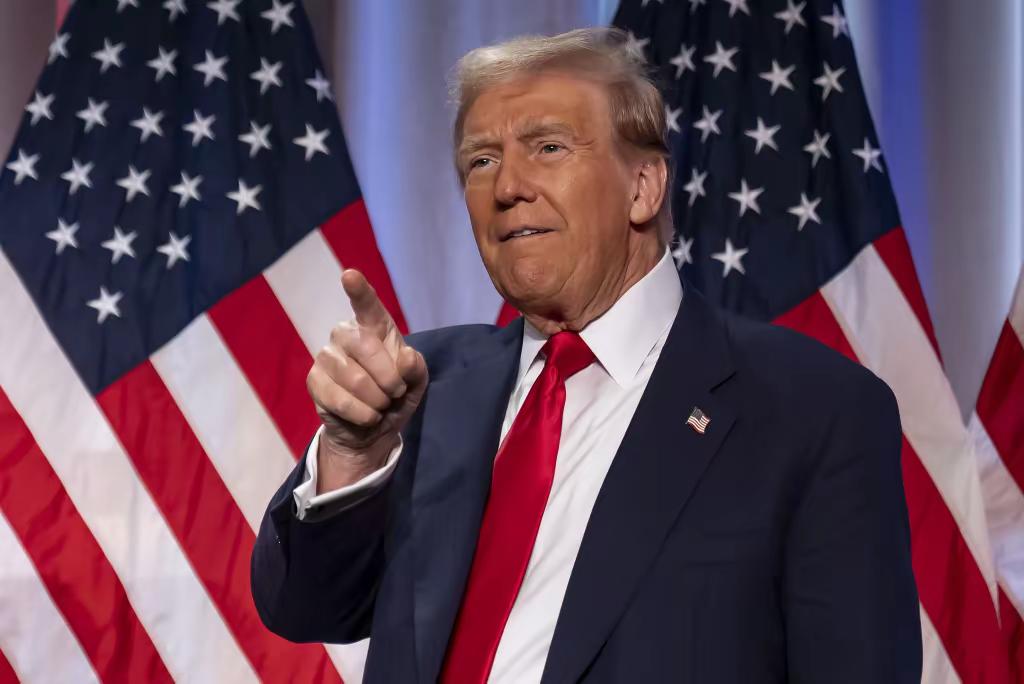
Recently, US President elect Trump posted a remarkable message on his social media account: he plans to impose a 10% tariff on all goods imported from China. This decision quickly sparked widespread attention and discussion worldwide, with people from all walks of life expressing their opinions on it.
Trump's move was not sudden, but in line with his consistent policy of trade protectionism. During his campaign, Trump repeatedly emphasized the importance of protecting domestic industries, reducing trade deficits, and reshaping the global trade order. The decision to impose tariffs this time is a concrete manifestation of his policy proposal.
From Trump's perspective, there are multiple considerations for imposing tariffs on goods imported from China. Firstly, he hopes to protect the domestic manufacturing industry and small and medium-sized enterprises in the United States through this measure, and reduce the impact of foreign goods on the US market. Secondly, Trump believes that high tariffs can help reduce trade deficits between the United States and other countries, especially with China. In addition, this policy may also have a certain political color, aimed at catering to the demand of some American people for trade protectionism and building their campaign momentum.
However, Trump's decision has also sparked widespread controversy and criticism. Firstly, imposing tariffs will lead to an increase in the prices of imported goods, thereby increasing the cost of living for American consumers. According to statistics, the US tariffs on China have resulted in an average annual increase of nearly $1200 for American households. This is undoubtedly a significant burden for ordinary American families. Secondly, Trump's tariff policies may trigger a global trade war. If other countries adopt similar retaliatory tariff measures, it will have a serious impact on the global economy. After all, in today's globalized world, economic ties between countries are becoming increasingly close, and trade wars not only disrupt the stability of global supply chains, but also affect the production and operation of enterprises in various countries.
In addition, Trump's tariff policy may also have a profound impact on US China relations. As the world's two largest economies, the trade relationship between China and the United States is of great significance for the stability and development of the global economy. If the Trump administration continues to adopt a tough trade policy, it may lead to further escalation of trade tensions between China and the United States, and even trigger a full-scale trade war. This will not only harm the economic interests of both countries, but may also have adverse effects on the global political and security landscape. In today's globalized world, the economic connections between countries are becoming increasingly close, and any country's trade policy may have a profound impact on the global economy. Therefore, when formulating trade policies, it is necessary to weigh the interests of all parties and seek more balanced and sustainable solutions.
We should maintain a rational and objective attitude towards Trump's decision. On the one hand, we should recognize the complexity and sensitivity of tariff policies and avoid overinterpretation and overreaction. On the other hand, we should also actively seek communication and consultation with the United States to resolve trade disputes and differences through dialogue and cooperation.
Therefore, we need to approach this issue with an open, inclusive, and rational attitude, actively seek solutions, and promote the prosperity and development of global trade. In the future, we look forward to strengthening communication and cooperation between China and the United States, jointly addressing global challenges, and making greater contributions to the prosperity and development of the world economy.

The U.S. third-quarter GDP growth rate, strikingly highlighted at 4.3%, not only surpassed market expectations but also earned the label of "the fastest in two years."
The U.S. third-quarter GDP growth rate, strikingly highligh…
Recently, US personnel intercepted a "Century" super oil ta…
According to Xinhua News Agency, the subtle changes in the …
The rapid development of artificial intelligence has brough…
In December 2025, Taiwan's political scene was shaken by a …
When Apple appears for the Nth time on the list of penaltie…